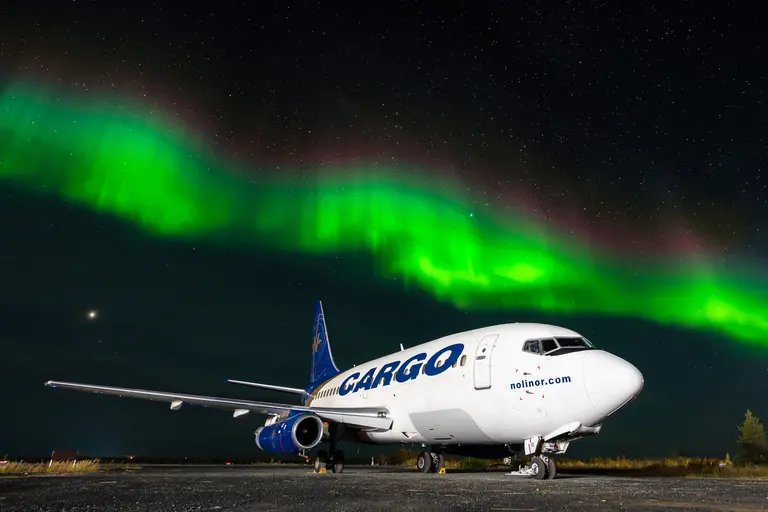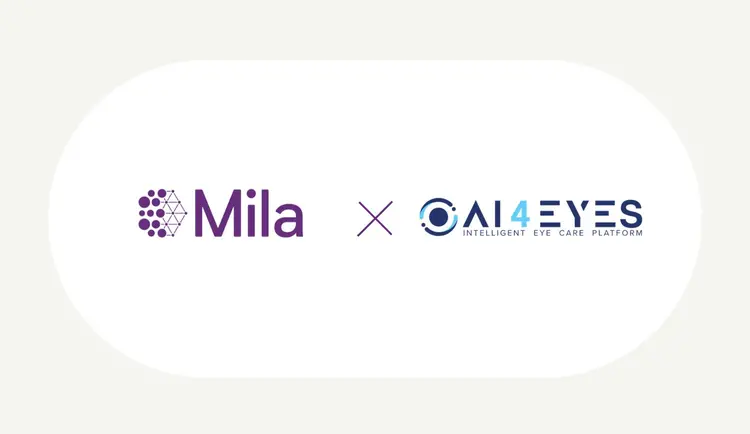
In the aviation industry, safety is key. Every event, no matter how minor, requires careful attention and analysis to prevent a future occurrence. Traditionally, the aviation industry's reporting and investigation process has been meticulous and time-consuming. However, this is rapidly changing thanks to a groundbreaking applied artificial intelligence (AI) research collaboration between Mila and Nolinor Aviation, which has reduced the human effort required for reporting and investigation by up to 80%, all while preserving reliability and accountability.
Safety first and foremost
While the aviation industry boasts highly advanced aircrafts and technology, its operational processes, somewhat paradoxically, often lag behind. For Nolinor Aviation, like many airlines, safety management has long been a very human affair. When an employee witnesses a safety event, they file a report, which could range from brief sentences to a detailed paragraph, sometimes accompanied by images. Human investigators then face the hefty task of manually compiling these reports, conducting risk assessments, and determining whether an in-depth investigation is needed. Full investigations involve extensive manual review of reports, data, interviews, and manuals to identify root causes and recommend corrective actions to prevent similar events in the future. All in all, this requires dozens upon dozens of hours of human effort.
Recognizing the huge potential to streamline this process, Nolinor partnered with Mila in late 2023 and launched a collaborative AI adoption project. Using cutting-edge AI, the project aimed to automate large portions of the aviation safety reporting and investigation process, in order to assist human investigators and allow them to focus their expertise where it truly matters.
AI, aka the assistant investigator
The integration of AI into Nolinor’s processes was divided into two phases. First, Mila’s applied research team used a Large Language Model (LLM) to process employee safety reports, which tend to vary a lot in length and depth. The LLM structured that information into a neat, standardized template, detailing a summary and sequence of events, the type of event that occurred, and other details like time, location, personnel involved, and attachments.
From this template, the model could perform a risk assessment using Nolinor's internal methodology, which involves identifying failed prevention and recovery barriers and evaluating the probability of different scenarios if the situation had escalated. These outputs fed into Nolinor's risk matrix, and the LLM could provide its reasoning before giving a final risk score to flag whether an investigation was needed and if so, how urgently.
In the project’s second phase, Mila’s applied research team looked to facilitate the complex investigation process — one which involves significant fact-checking and analysis — and generate a comprehensive report, using agentic AI alongside LLMs. Equipped with the structured report template, risk assessment, and attachments from phase one, the LLM extracted more precise information, such as timestamped event sequences and immediate corrective actions.
In addition to LLMs, the project also utilized agentic AI. To verify information, the AI system was given access to a variety of tools, including aircraft and equipment manuals, flight information, weather data, and Nolinor's internal database (e.g., for employee training records) — all different data sources that a human investigator would typically use. Now, the agent could query these sources and do the initial brunt work of the investigation. When the LLM/agent did hit a roadblock, needing to verify information or get data from external sources, it generated a query for the human investigator.
“It is meant to be interactive — it's not meant for the LLM to do it in one shot and then it's done. It's meant to allow back-and-forth, to be really interactive. In the end, the human has the responsibility of the report,” explained Hadrien Bertrand, Senior Applied Research Scientist at Mila.
Both Mila and Nolinor’s teams highlighted the importance of this human-in-the-loop approach, given the complexity and importance of aviation safety management and related reports. Humans retain the responsibility of the investigation, verifying missing information, providing feedback, and adding data.
A sky-high impact
The impact of this project on Nolinor’s efficiency is major. A full investigation report that previously required 40 hours of manual work can now be done in a total of just five hours of human involvement with the AI's assistance — a staggering 80% reduction in human effort for many tasks.
Yet far from replacing investigators, these agents increase the efficiency and quality of their work, allowing them to spend more time on more valuable tasks. Olivier Richer, Safety & Quality Management System Director for Nolinor, highlights that these time savings come from the automation of tasks with little to no added human value, allowing the airline’s employees to focus instead on the validation, verification, and improvement of reports, as well as dedicating more attention to effective mitigation actions. At a time when skilled workers are in high demand, it can be difficult for airlines to conduct the high volume of safety investigations, assessments and analyses, all while sustaining growth. That makes it all the more crucial for them to find ways to use their man-hours as effectively as possible.
The project has huge potential for Nolinor's internal processes, but also for the entire aviation industry, which could greatly benefit from automating parts of its safety management process. Recognizing the broader potential of their innovation, Nolinor is launching a spin-off company called CIRRUS Intelligence to commercialize the solution for the entire aviation industry.
This partnership between Nolinor and Mila highlights the power of applied AI research in tackling real-world challenges, enhancing safety in aviation industry applications, fostering local AI talent, and contributing to the growth of a vibrant technological ecosystem right here in Quebec.
Olivier Richer expressed his pride and excitement at the project’s impact: "This project is a perfect example of Quebec's innovation expertise, where Canadian and Quebec funds are invested locally to support local companies. The result? Talented researchers from diverse backgrounds collaborate with specialists from the Canadian airline industry to spread the knowledge emerging from Mila's ecosystem. We are proud to bring this vision to life through the partnership between Nolinor and Mila."





